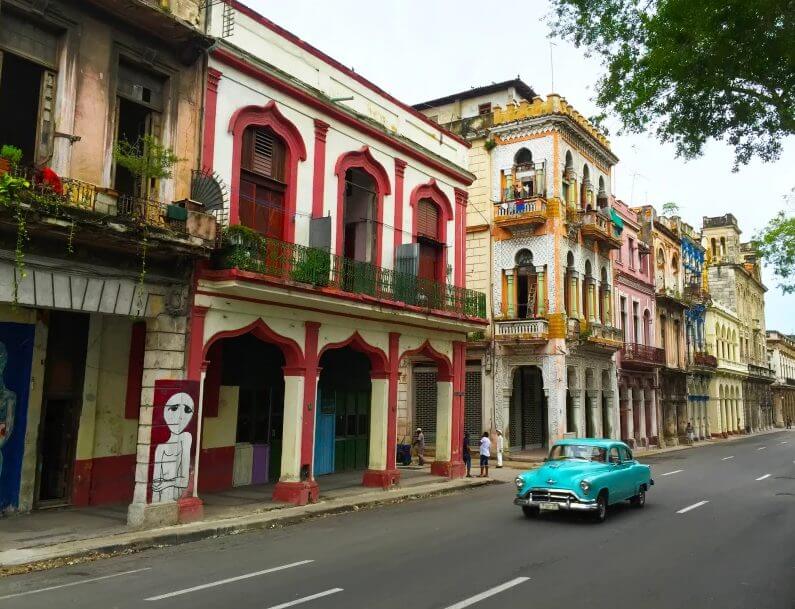The Cuban Adjustment Act is a topic of interest to many Latino immigrants, especially those of Cuban origin. If you find yourself in this situation, and need to better understand the details of this legislation, you are in the right place.
In this article, we will answer five frequently asked questions about how the Cuban Adjustment Act works. From the duration of the process to the possible restrictions, we provide you with an overview to better understand this act.
At Jaskot Law, we understand the importance and complexity of this act for Latino immigrants. Therefore, we will try to provide you with clear and concise answers.
What is the Cuban Adjustment Act, and how does it work?
The Cuban Adjustment Act is a U.S. immigration law that was passed in 1966. It allows Cuban nationals to apply for permanent residency in the U.S. after staying in the country for at least one year.

When embarking on this process, applicants begin to get overwhelmed by doubt and uncertainty. So, here we answer some of the most frequently asked questions about how the Cuban Adjustment Act works so that you can go through the process with peace of mind.
How long does the Cuban adjustment residency take?
The Cuban adjustment residency process can take an average of 9 to 12 months. It is important to clarify that such duration is subject to the application conditions and the documentation submitted.
Such conditions and documentation refer to the legal formalities and requirements that must be fulfilled when applying for adjustment of status, such as the submission of specific forms and documents. This is why we recommend that you work with professional legal counsel to expedite the process.
If you have further questions about the duration of the Cuban adjustment residency process, please contact Jaskot Law at +1 (410)-235-6868 or via jared@jaskot.law. We are here to help you!
Are there any exceptions, limitations or restrictions in the Cuban Adjustment Act?
Although the Cuban Adjustment Act offers a preferential adjustment of status pathway for Cuban nationals, there are significant restrictions. Some grounds for inadmissibility include:
- Inadmissibility for health reasons: This includes, among others, persons with contagious diseases relevant to public health or who suffer or have suffered from any physical or mental disorder associated with dangerous behaviors.
- Inadmissibility for criminal activity: This includes crimes of “moral turpitude”, criminal convictions, violation of multiple laws, prostitution, among others.
- Inadmissibility for fraud: This includes any person who initiates the process by knowingly submitting false documents and statements.
- Inadmissibility for prior removals and/or unlawful presence: This includes persons who have been deported and/or have left the United States at their own expense.
It is important to mention that, in case of inadmissibility, the Law allows you to file a waiver or other form of relief on some of these grounds through the following appeals:
- Form I-601: Application for Waiver of Grounds for Inadmissibility
- Form I-212: Application for Permission to Reapply for Admission to the United States After Removal or Deportation
What happens if I do not meet the requirements of the Cuban Adjustment Act?
If you do not meet the requirements established by the Cuban Adjustment Act, you may not be eligible to adjust your status under this particular law. However, there are other alternatives, such as the following:
- Employment-based immigrant visa: With this option, Cubans may qualify for a work visa if they have specialized skills, education or experience that is required by a U.S. employer.
- Family-based immigrant visa: It allows Cubans who have close relatives who are already U.S. citizens or permanent residents to apply for a Green Card through family reunification.
While in some cases there may be long waiting times, due to visa quotas, for example, these resources remain a possibility for Cubans wishing to settle permanently in the United States.
What do I do while my residency under the Cuban Adjustment Act is approved?
While your residency under the Cuban Adjustment Act is being approved, you can obtain additional resources. For example, you can apply for an employment authorization and obtain your work permit card.

Some non-citizens who are in the United States may use Form I-765 Application for Employment Authorization, to apply for employment authorization and an Employment Authorization Document (EAD).
If you are awaiting approval of your residency under the Cuban Adjustment Act, please do not hesitate to contact Jaskot Law for advice on how to make the most of this transition period.
Is there a fee or cost to participate in this process?
Yes, participating in the Cuban adjustment residency process involves certain costs and fees, which vary according to the documentation you must present. As a guide, the USCIS presents the following table:
| If you are… | Filing Fee | Biometric Services Fee | Total |
| Under 14 and filing with the Form I-485 application of at least 1 parent | $750 | $0 | $750 |
| Under 14 and not filing with the Form I-485 application of at least one parent | $1,140 | $0 | $1,140 |
| Age 14–78 | $1,140 | $85 | $1,225 |
| Age 79 or older | $1,140 | $0 | $1,140 |
| Filing Form I-485 based on having been admitted to the United States as a refugee | $0 | $0 | $0 |
Conclusion
The Cuban Adjustment Act provides many opportunities for Cubans to seek a better life in the United States. With benefits such as permanent residency and the possibility of obtaining citizenship, this law has been a tempting option for those wishing to settle in the country.
However, it is essential to understand the duration, possible exceptions and/or restrictions, alternatives in case of ineligibility, costs, and all relevant information of the process in order to make grounded decisions.
At Jaskot Law, our team of immigration attorneys is here to provide you with the information and support you need. Do not hesitate to contact us at +1 (410)-235-6868 or through jared@jaskot.law and start your journey towards a better understanding and application of how the Cuban Adjustment Act works.
Source
Frequently Asked Questions
Are there differences between the Cuban Adjustment Act and Political Asylum?
Yes, they are two different ways to obtain protection and permanent residency. If you want to know more, we invite you to read our complete guide on this matter.
Does the Cuban Adjustment Act offer any benefits?
Yes, under the Cuban Adjustment Act, Cuban immigrants receive immediate immigration benefits. Access our complete guide and find out what they are.
Can immediate family members of a Cuban apply for permanent residency under the Cuban Adjustment Act?
Yes, immediate family members of a Cuban national who is a beneficiary of the Cuban Adjustment Act may also receive permanent residency.
What are the requirements to apply for permanent residency under the Cuban Adjustment Act?
One of the most important requirements is to have lived for at least one year in the United States. To find out what documentation you can submit to prove it, read our guide to the Cuban Adjustment Act.

